VPN Protocols - OpenVPN vs L2TP vs SSTP vs PPTP
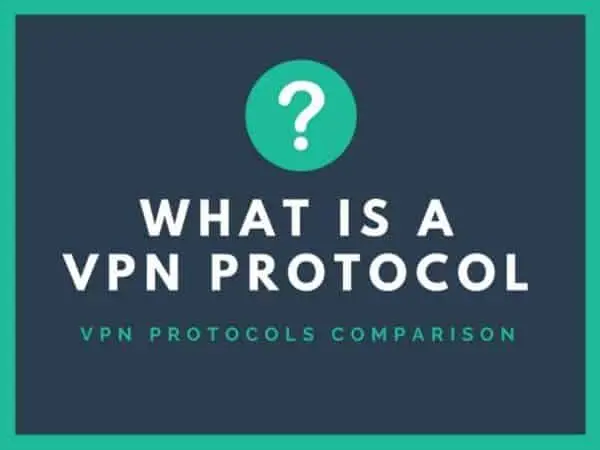
VPN Protocols are one of the many features that keep your data secure and encrypted while on a VPN service.
There are different types of protocols, the three most popular being PPTP, L2TP, and OpenVPN. Microsoft also offers a proprietary protocol, SSTP, which we will discuss.
So let’s see what VPN protocols are available and how they differ in functionalities and performances.
What is a VPN protocol?
VPN tunneling protocols act as deterrents to surveillance, attacks, and censored material.
When you use a VPN connection, all your data will be encrypted.
This is possible thanks to the VPN protocol. Depending on which type you are using, the level of encryption can be stronger or weaker.
Therefore, it is critical for you to understand what is the difference between VPN protocols and choose the one that offers the best protection for your specific needs.
VPN protocols ensure encryption
As we said before, VPN protocols ensure all the traffic going from the user’s machine to the VPN server is encrypted.
While the VPN service offers a direct route to their private servers, it is really the type of VPN protocol that makes sure all data is secure.
Different VPN protocols offer different levels of security.
PPTP, for instance, offers limited protection. Even though the ease of use is there for the customer, the level of security and encryption is quite low compared to some of the other options.
The most common VPN protocols are PPTP, L2TP, OpenVPN, and SSTP. Our VPN protocol comparison will help you understand which one will work best for your needs.
How VPN protocols work
When you are using a VPN service, there are several aspects at work that ensure that this is a safe and secure connection.
The VPN protocols play a major role in protecting your privacy and making your connection entirely secure.
They are what is keeping data that is being transferred between points secure and safe.
When your traffic goes through a VPN tunneling protocol, the information is distorted, changed, and encrypted.
The level and quality of this encryption depend on which protocol the VPN utilizes.
Each protocol is developed for use with specific standards in place. These standards include, for instance, the operating system being used and the level of protection that needs to be achieved.
It is due to these protocols that those who use a VPN can ensure that anything they send via email, what they download, or even what they browse online is going to be for their eyes only.
It is easily understood how important it is to select the most secure VPN protocol.
A good VPN protocol will make your data impossible to understand and therefore useless. Instead, if you use a less secure protocol, your data may be deciphered even though with some effort.
VPN protocols comparison
The following discussion will help you to understand the major differences between different types of VPN protocols.
We will explain how these differences impact your security and what are the pros and cons of each VPN protocol.
1. PPTP VPN protocol
PPTP (Point to Point TunnelingProtocol) is one of the earliest VPN Protocols and still going. It is easy to set up, comes with low overhead, and works on virtually every device.
The downsides of PPTP are quite numerous and deserve your attention.
Lackluster encryption at 128-bit is the major downside of the PPTP protocol.
Bad performance with disconnections and one of the easiest to hack is what characterizes this VPN protocol.
PPTP is easily blocked by governments with good censorship software.
The NSA has programs capable of breaking PPTP security and there is a well-founded suspicion that they decrypt PPTP encrypted communication as a standard.
Without a doubt, not the VPN protocol to use if you deeply care about your security.
On the other side, since the encryption is quite poor, PPTP has minimal impact on your connection speed.
If the task you are at doesn’t require high-level security and you need a fast connection, PPTP could be your solution.
In any case, keep in mind that PPTP VPN protocol is not recommended and you should avoid it as much as you can.
Advantages of PPTP VPN protocol
There are several advantages to PPTP, which is why it is often seen being used by companies and individuals. These include:
- Easy to use with Windows. Those who run a Windows operating system will find that by default Windows works with PPTP. Therefore, there will be no hassle with installing the necessary programs and software to make this run on the computer.
- Doesn’t impact your connection. Since the quality of encryption provided is quite poor, this VPN protocol is not invasive and the connection is faster than with other protocols.
- Easy to work with. No matter what operating system you are using, PPTP has the huge benefit of being easy to work through. The reason for this is that IPsec, a data encryption tool, is not normally used.
- Cost-Effective. Since PPTP does not require any additional certificates to use, it can be more cost-effective than other protocols on the market.
- Easy to understand. PPTP protocol is so easy to understand that most people can do this on their own with a little self-training, rather than paying someone else to do this for them.
Disadvantages of PPTP VPN protocol
Though the benefits of PPTP are numerous, there are two big disadvantages that need to be pointed out:
- Does not work well with lots of data being shared. This protocol was developed with the idea of sharing files and smaller amounts of information. For companies or individuals sharing tons of information, PPTP can result in instability.
- Security standards are lower than other protocols. This is the most relevant disadvantage. Other protocols on the market do have a higher set of security standards. PPTP does not offer data origin verification or data integrity which can result in the unknown for many companies or individuals. This can affect the reliability of PPTP. In fact, this protocol can be hacked easily, and it is not going to work with any government censorship in place.
2. L2TP VPN Protocol
L2TP (Layer 2 Tunnelling Protocol) is another old VPN protocol, dating back to the same age as PPTP.
Thankfully, L2TP is a bit more secure when it comes to encrypting data and making sure that data cannot simply be hacked and stolen.
Encryption goes up to 256-bit and L2TP is available on almost every platform, although it is a little harder to set up when compared with PPTP.
Some issues with L2TP include speeds with the protocol and the fact that many ISPs (Internet Service Providers) can easily ban connections through L2TP.
L2TP or Layer 2 Tunneling Protocol, basically combines the earlier version of PPTP manufactured by Microsoft, while also taking elements from Cisco’s Layer 2 Forwarding system.
Advantages of L2TP VPN protocol
There are several advantages that make L2TP a VPN protocol that several VPNs still use:
- Data is much more secure than when compared to protocols such as PPTP. Â Through using an L2TP you can ensure that the information that is being transferred is not being lost in translation. This protocol works to ensure nothing is lost in this format, while also ensuring that information cannot be heard by third-party people.
- Much faster than other VPN protocols on the market.
Disadvantages of L2TP VPN protocol
Though the advantages are numerous, there are some drawbacks that have to be considered. These drawbacks include:
- Problems with some firewalls.It may happen for a firewall to work against the L2TP and affect the speed of how this performs.
- High usage of computer resources. Due to the way in which this protocol is set up, it does a high amount of usage on a computer, which can ultimately affect the overall speed of the computer that is being used.
L2TP is a viable option that has speed on its side, as well as numerous security protocols in place. However, still not the best VPN protocol to guarantee high security and a pleasant user experience.
3. OpenVPN protocol
OpenVPN is the new high standard when it comes to VPN protocol.
A lot of this has to do with community support. The VPN community works on open-source programs to make OpenVPN even more secure, every day.
OpenVPN takes advantage of OpenSSL certificates for encryption and supports faster hardware, capable of more speed management.
Some downsides to OpenVPN are that not all VPN services have it available and the 128-bit blowfish is known to have some weaknesses.
In any case, this is actually a VPN protocol that several people want to use, as it is constantly working on making it the best protocol that is on the network.
OpenVPN is a community project, in which various people work to make this something that is going to work for the long haul with a VPN. Due to this, several VPNâs utilize OpenVPN as one of their tunneling protocols.
Advantages of OpenVPN protocol
There are several advantages that OpenVPN offers to those who are utilizing this type of tunneling protocol. These advantages are:
- Very high-security interface. OpenVPN protocol ensures that your information is safe from those who may try to get it. OpenVPN utilizes shared keys, certificates, and other forms of security to ensure that everyone is safe while online.
- The tunneling protocol is very reliable. Should the tunnel go down, the entire system will shut down in order to make repairs, thus ensuring that you cannot send data or information that would be lost.
- Great support features. Since this is an open protocol, people from all around the world can help to make this better and implement new features
Disadvantages of OpenVPN protocol
Though the advantages are numerous for OpenVPN, there are several disadvantages that need to be taken into consideration when dealing with this protocol. These disadvantages are:
- Occasional problems with the proxy. Not all proxies are going to support OpenVPN. However, this is an easy solution in only using a proxy that is supported, which may or may not be the case in some locations throughout the world.
- Requires fairly sophisticated machines on both ends in order for this protocol to run effectively.
- Hard to set up. It can be hard to install this protocol for those who are beginners, as there is a lot involved in this. In any case, if you use a VPN provider that supports OpenVPN, like the ones listed below, you don’t need to go through any setup. Once you install their apps on your devices, they will set OpenVPN automatically.
Overall, OpenVPN is a fantastic VPN protocol with great support. OpenVPN is the most recommended VPN protocol.
VPNs that support the OpenVPN protocol
There are several VPNs on the market that are meant to protect you. However, there are a few that stand out as being far superior to the competition.
One reason is that they support the most secure protocols including, of course, OpenVPN.
1. ExpressVPN – fastest and highly secure
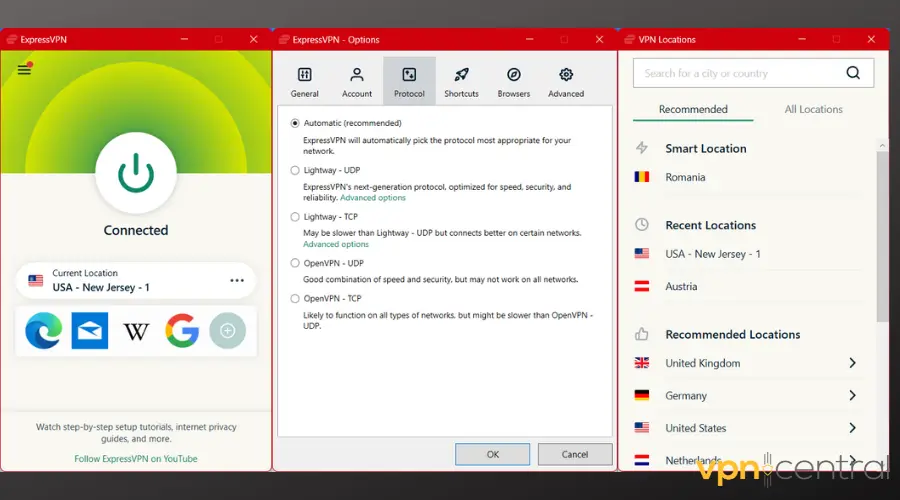
ExpressVPN is always a safe choice. It supports all the major protocols like:
- OpenVPN-UDP
- OpenVPN-TCP
- L2TP-IPSec
- PPTP
In the ExpressVPN software, you may go for the Automatic selection for the VPN Protocol. In this case, the software will always go for the best VPN protocol for your network.
Additionally, ExpressVPN is a no logs VPN provider that totally protect your sensitive data.
2. CyberGhost – beginner-friendly with specialty servers
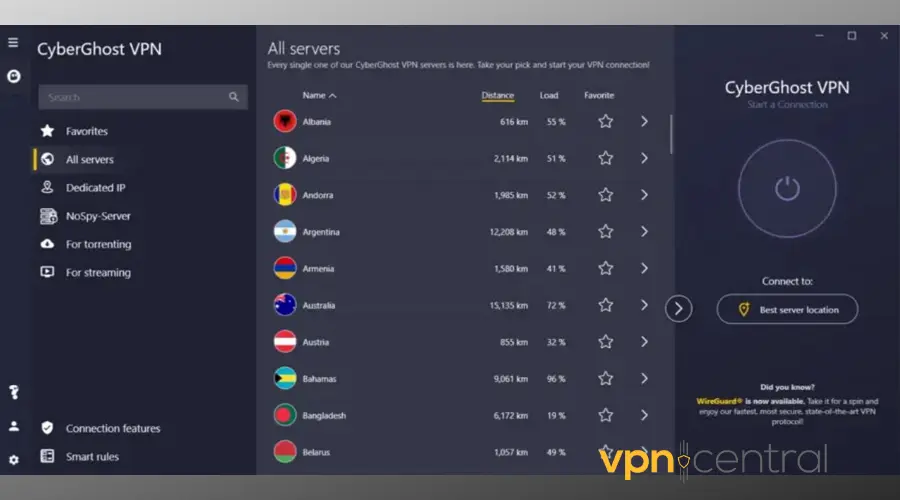
CyberGhost is a Romanian-based VPN provider. It supports all the major VPN protocols like:
- L2TP-IPsec
- PPTP
- OpenVPN
Being based in Romania, CyberGhost can easily provide a strict no-logs policy. The good network of servers around the world and its reliable service will work well to protect you online.
3. Private Internet Access – huge server network
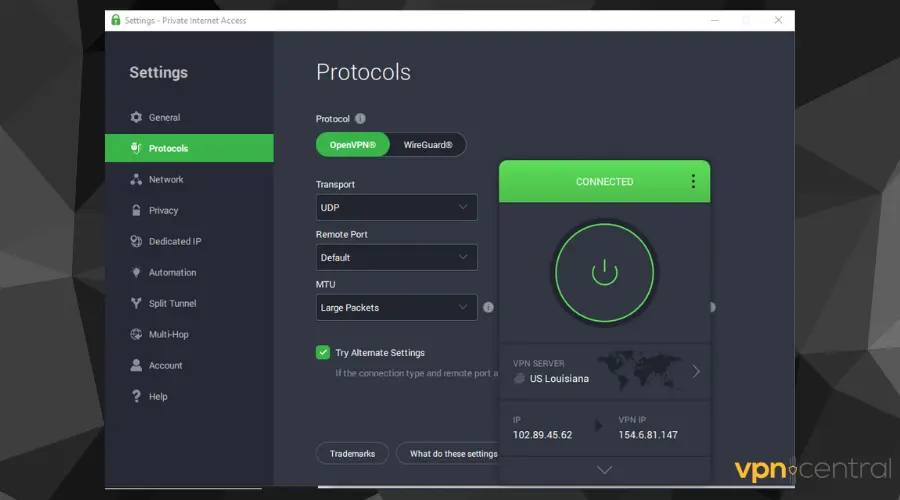
Private Internet Access is a US-based VPN provider that supports these VPN protocols:
- OpenVPN
- L2TP/IPSec
- PPTP
OpenVPN is, of course, the recommended one to entirely protect your connection.
The company claims to be a no-logs VPN provider even though being under the US jurisdiction could at a certain point become a problem.
In any case, up to now, PIA has proved to be a reliable and secure provider.
Why VPN protocols are vital
The whole idea behind a VPN is the security that it offers. These types of VPN protocols are what make security possible.
Without VPN protocols, there would be no security that could be offered, hence making everyone vulnerable to having personal and private information stolen, as well as easily being monitored for what they are doing online.
A VPN is a virtual private network that is meant to offer protection while online.
Anything that is completed through a VPN allows the user to find a way around blocked websites, a way to hide their location and to secure the information that they are sending.
Without these VPNs, a person is vulnerable to any attack that hackers can perform.
If you don’t go for one of the most reliable VPNs that support the best protocols, most important OpenVPN, your Internet security, and privacy will always be at risk.
Read our disclosure page to find out how can you help VPNCentral sustain the editorial team Read more





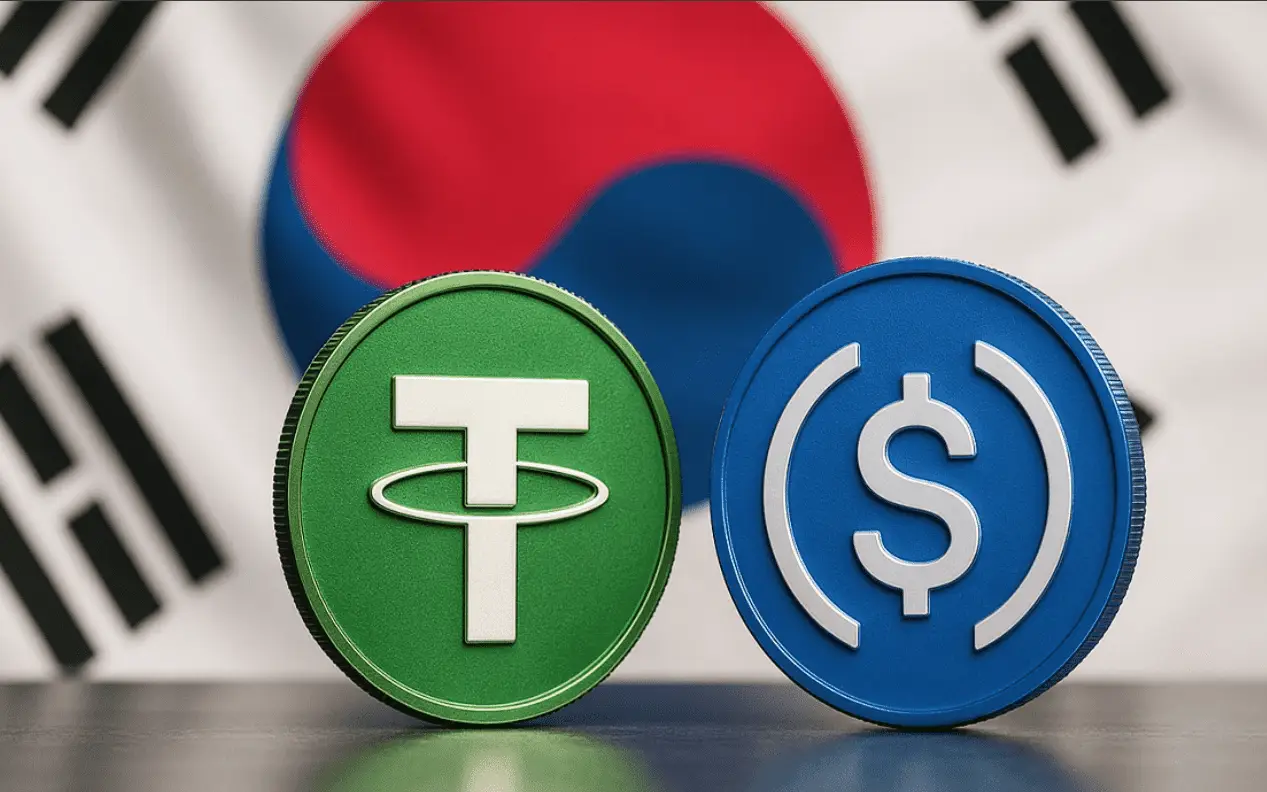
User forum
0 messages